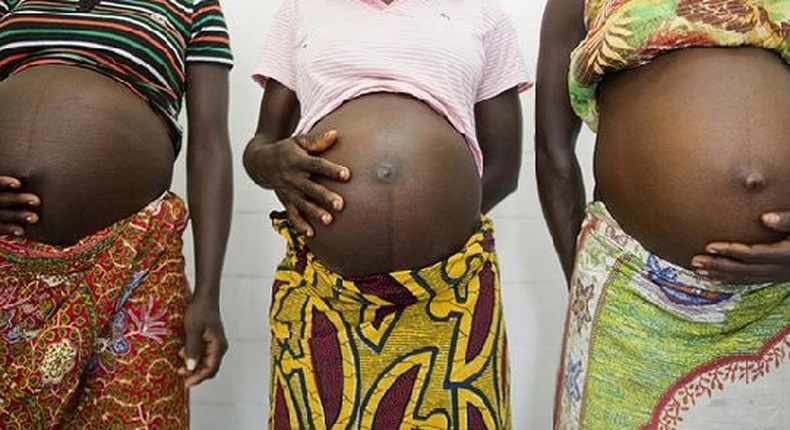The regions have recorded the highest number of teenage pregnancies from 2016 to 2020 with over 64,000 cases.
In the course of four years, 28,284 teenage pregnancies were recorded in the Bono East region.
The Bono region came second with 22,944 teenage pregnancy cases while the Ahafo region recorded the lowest teenage pregnancy cases of 12,861 within the same period.
Nearly 555,575 teenagers aged 10 to 19 got pregnant between 2016 and 2020 at the national level.
The Chief Executive Officer (CEO) of Global Media Foundation, Raphael Godlove Ahenu, disclosed this at a media engagement in Sunyani when a report on the 2022 teenage pregnancy rate was released in the regions.
According to the reports titled “the State of teenage pregnancy in the Bono, Bono East, and Ahafo regions” identified high levels of poverty, early marriage, gender discrimination based on historic unequal gender roles, the lack of sexual and reproductive health education, lack of access to contraceptive use and discrimination against reproductive rights for young women as some of the factors contributing to the high levels of adolescent pregnancy.
Mr. Ahenu, understanding both the individual and societal causes and effects of teenage pregnancy could effectively deal with the situation in Ghana.
He said research shows direct links between the levels of education and the age of the first sexual intercourse experience.
“The higher the educational level of the adolescent, the less likely they are to engage in sexual intercourse at an early age,” he added.
Mr. Ahenu further called for effective collaboration between Non-Governmental Organisations (NGOs) and the government in addressing teenage pregnancy and increasing research efforts focused on key regions and districts.
“Developing a comprehensive and coordinated approach to reduce the high rates of teenage pregnancy in Ghana must be a priority of the government, NGOs, and civil society,” he stressed.
He said the reproductive health of adolescents and young people is a crucial issue, as it has an impact not only on the health of this generation currently in this age group but also on them in their adult years.
Hence, he stressed one obvious way to curb the menace is by supporting parents and caregivers in their children’s earliest years through evidence-based parenting programs to promote responsive caregiving.













 Sompaonline.com offers its reading audience with a comprehensive online source for up-to-the-minute news about politics, business, entertainment and other issues in Ghana
Sompaonline.com offers its reading audience with a comprehensive online source for up-to-the-minute news about politics, business, entertainment and other issues in Ghana